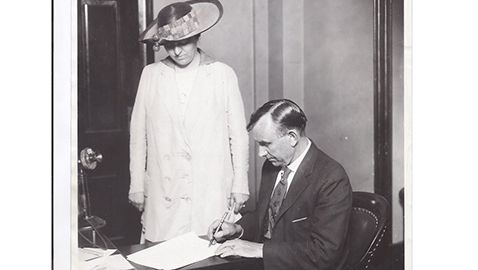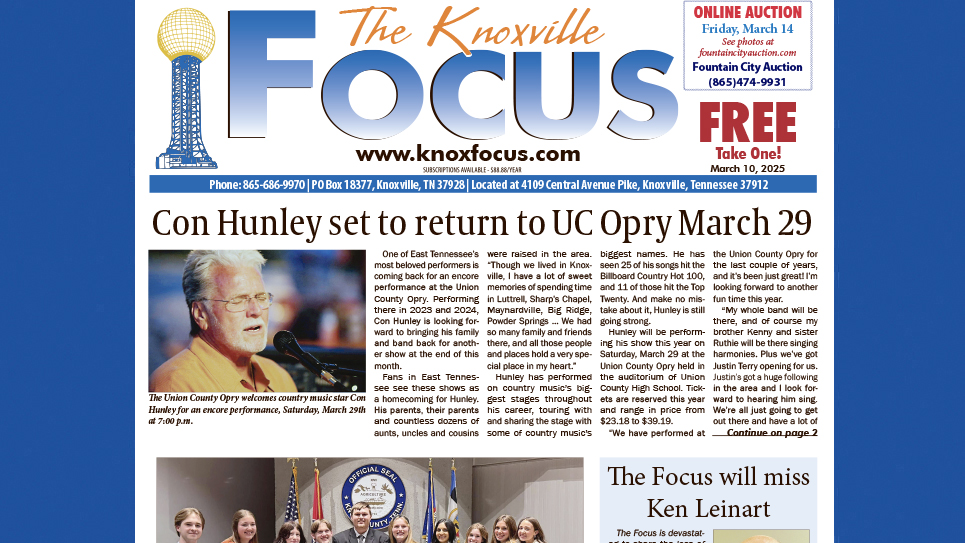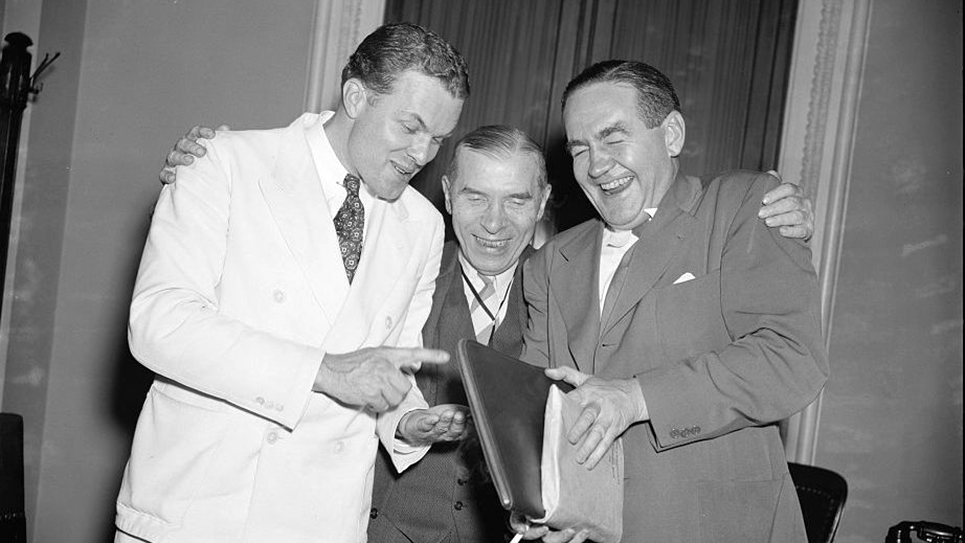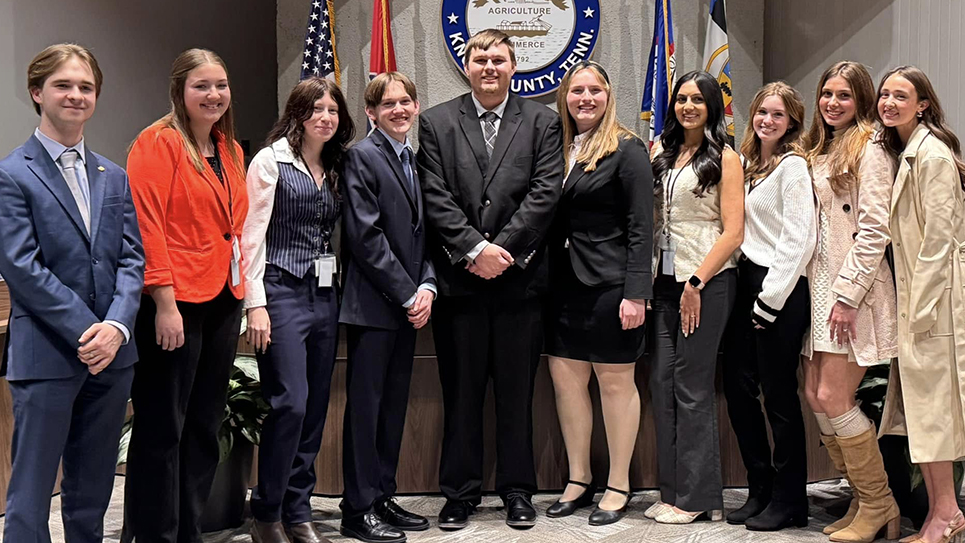Republicans were nowhere near a majority in the state of Tennessee in 1920, although they were briefly a force to be reckoned with when the Democrats were torn asunder by strife. Ben W. Hooper had twice been elected governor in 1910 and 1912 following a period of especially fierce infighting amongst Tennessee Democrats. The party had been so bitterly divided even Robert Love Taylor, a three-time governor and incumbent United States senator, was unable to beat Hooper. The First and Second Congressional districts remained solidly Republican, at least on the local level. There were pockets of Republican votes in counties across Tennessee, although they were mighty scarce in rock-ribbed Democratic Middle Tennessee.
Neither of Tennessee’s United States senators were up for reelection in 1920; Kenneth D. McKellar had been the first man to be popularly elected to the U. S. Senate from Tennessee in 1916. In 1918 John Knight Shields, the last man to be elected to the U. S. Senate by the Tennessee state legislature, had been reelected by the people. A. H. Roberts had been elected governor and during his first term had managed to alienate just about every constituency possible in two years. Roberts had been elected on a platform opposing giving women the right to vote and Tennessee had just barely become the last state necessary to ratify the Nineteenth Amendment to the Constitution, granting women suffrage. Roberts dithered over one of the most contentious sessions of the Tennessee General Assembly in the state’s history. Feminists, strongly supported by Senator K. D. McKellar and his personal friend and political ally, E. H. Crump, leader of the Shelby County political organization, fought a pitched battle. McKellar’s senior colleague, John Knight Shields, like much of the rest of Tennessee’s Congressional delegation, opposed suffrage for women. Some of Tennessee’s congressmen tried to evade the issue, by proclaiming it a matter for the individual states to decide while voting against any federal bill giving women the right to vote. Tennessee was the final state needed to ratify the Nineteenth Amendment, enfranchising every woman in the country.
The 1920 election would be the first time every woman in Tennessee who paid the poll tax would be able to cast her ballot. The very idea gave Governor A. H. Roberts the jitters and rightly so. The governor was fearful a goodly number of women would be against him for having opposed giving them the right to vote. Nor was Roberts entirely confident of even winning renomination. Many Tennessee Democrats were urging James B. Frazier to seek the gubernatorial nomination. The sixty-four-year-old Frazier had twice been elected governor of Tennessee and served one term in the United States Senate. Frazier had returned to the practice of law and remained a highly sought after speaker for events all across Tennessee.
The Chattanoogan pondered the possibility of making a political comeback before finally making an announcement on March 1, 1920, stating he would not run. Frazier cited Tennesseans usually granted governors a second term, but he acknowledged A. H. Roberts had serious political problems. “There is, of course, an element of opposition to Governor Roberts,” Frazier admitted, “and it is to be found all over the state. But every governor has encountered more or less hostility at the close of his first term.” Frazier said it would likely be impossible to tell the depth of the opposition to Governor Roberts as he was likely to be renominated without facing a serious challenger. Yet the former governor opined, “Some of the Governor’s most conspicuous innovations in state policies have not yet been tried out. Some of them are not popular and they may be less popular later, but none of them would exert very great influence on the August primary results, even though there were an opposing candidate.”
Another prospective opponent to Governor A. H. Roberts was General Lawrence D. Tyson of Knoxville. Aside from a sterling record in the recent World War, Tyson had been Speaker of the Tennessee House of Representatives and was expected to be strong in his native East Tennessee. Tyson, like Frazier before him, finally concluded he would not be a candidate. Tyson had gone so far as to visit Nashville and personally meet with those who urged him to challenge the governor in the Democratic primary. Tyson came to the conclusion a divisive primary might do nothing more than aid the Republicans, who appeared to be ready to mount a serious bid for the governorship. “I prefer to sacrifice my personal interest for the welfare of the party,” the General said, “and will not enter the race.” Tyson readily acknowledged there were a goodly number of Tennessee Democrats who were thoroughly dissatisfied with A. H. Roberts. Some disliked the way Roberts had conducted his administration while others were mad at the governor over laws passed in the last session of the legislature. Tyson said some Democrats worried “that unless someone other than Governor Roberts was nominated, the Republicans would win the November election.” That notion was “of such grave concern” Tyson felt compelled to listen to the importunings of those Democrats begging him to run against the governor. Tyson admitted he was “not without ambition” but he feared if he ran in the primary and lost to Roberts and the governor, in turn, lost to a Republican candidate in the fall election “I and my friends might be held responsible.” Tyson preferred to wait for another opportunity to run for statewide office.
There was ample reason for discontent amongst the voters. One of the laws passed by the General Assembly had been a new tax, which although unpopular, had put Tennessee’s books back into the black. The Kingsport Times praised Roberts for his political courage and while admitting the new law was not popular it kept Tennessee from borrowing money simply to keep the state running. The Times editorialized Roberts deserved to be reelected before any candidate emerged to challenge him inside the Democratic primary. The Times also scoffed at the statement made by Hal Clements, Chairman of the State Republican Committee, who flatly said any GOP candidate would beat A. H. Roberts in the fall.
Governor Roberts was taking no chances and was busy traveling the state and fine-tuning his campaign. By the end of April, Roberts had opened his state headquarters in the Maxwell House Hotel in Nashville and promised he would name a campaign manager “within a day or two.” Roberts found his campaign manager in Carthage, Tennessee. The governor named J. N. Fisher to manage his reelection bid. Fisher was an attorney and experienced politician, having served several terms in the Tennessee State Senate.
It soon became readily apparent the governor would need a good campaign manager when seventy-two year old Alf Taylor entered the gubernatorial campaign. A former congressman and brother of the late Robert Love Taylor, Alf Taylor had once before been the GOP nominee for governor. In fact, Alf Taylor had run against his brother Bob in a campaign known as the “War of the Roses” with each candidates’ supporters wearing either a red or white rose to indicate support for their favorite. Bob Taylor’s friends wore a white rose, while Alf’s supporters wore the red rose.
Taylor said while he personally preferred to remain in the “tranquility of semi-political retirement”, he could not ignore the many Tennesseans urging him to become a candidate. Taylor promised his campaign would be “dignified” and “free from animosities or personalities.” Taylor said he would try and run a race that was free of “all bitterness” and would certainly not “play upon prejudice.” Taylor faced an opponent for the Republican nomination. Jesse Littleton, the former mayor of Chattanooga, was already campaigning to become the Republican standard-bearer in the general election.
Nor was Governor A. H. Roberts able to avoid opposition in the Democratic primary. Colonel W. R. Crabtree, a former Speaker of the Tennessee State Senate, announced he was running for governor on June 6, 1920. Crabtree said he was running because of the failure of the Roberts administration and was critical of the tax law supported by the governor and passed by the state legislature. Crabtree charged Governor Roberts of heading an administration that was rife with “wanton extravagance” in state expenditures. Crabtree accused the governor of having made “public schools, penal and charitable institutions” political pawns due to appointments. Colonel Crabtree also charged Governor Roberts with holding a “contradictory attitude toward President Wilson.” According to Crabtree, the governor, while praising the stricken President publicly, was secretly allied with Senator John Knight Shields, who had opposed Woodrow Wilson’s Treaty of Versailles and American participation in the League of Nations by joining with Senate Republicans in supporting reservations to the treaty’s approval.
Colonel Crabtree was from Chattanooga and was a former mayor of that city and owned a real estate business and operated a farm. Crabtree claimed he was seeking the Democratic nomination for governor in response to a “demand” by thousands of Democrats across the state. Within days of his announcement, W. R. Crabtree opened his statewide campaign headquarters in Nashville’s Tulane Hotel. Crabtree was quickly angered by the Tennessee State Democratic convention endorsing the candidacy of Governor A. H. Roberts. Crabtree said he was neither surprised nor disappointed by the action of the convention. Crabtree maintained the real contest would be the Democratic primary where the people would make their own selection of a nominee. Crabtree chortled the endorsement of Roberts was hardly overwhelming and had urged repeal of one of the governor’s “pet measures.” Crabtree snapped the endorsement of Roberts was a “singed cat” approval that meant little. The Colonel pointed out many of the delegates to the convention had been selected before he had announced his own candidacy and noted the numerous state employees who attended the meeting.
Shortly after the state convention, the Nashville Tennessean published an editorial praising Crabtree as a legitimate candidate for governor. Listing all of Crabtree’s accomplishments, the Tennessean noted the Colonel had been successful in all of his political endeavors save for a failed race for the Democratic nomination for governor in 1912. The Tennessean predicted, “Mr. Crabtree will continue to grow in popular favor as his personality and public opinions become known by the voters.”
W. R. Crabtree opened his drive to win the Democratic gubernatorial nomination on June 19, 1920, in Murfreesboro, Tennessee. Crabtree said he answered the call of those Democrats who wished for a return to “Democratic simplicity, economy and efficiency in government” rather than the “whims, caprices, selfishness and extravagance of the Roberts administration.” Crabtree acknowledged Tennesseans wisely adhered to the “wholesome custom” of according good governors a second term but argued anything less than a good governor did not deserve a second term. “I submit,” Crabtree roared, “that Governor Roberts’ record as governor does not deserve an endorsement.” Crabtree, himself engaged in farming and real estate speculation, damned the governor’s “new-fangled tax system” as grossly unfair. Colonel Crabtree illustrated what he believed was the basic flaw in the governor’s tax plan by quoting from the Bible, “To him who hath shall be given, and from him who hath not even that little shall be taken away.” Crabtree said Roberts’ tax plan “singles out real estate, and especially farmlands, as its target…” Crabtree complained the tax burden fell upon the “already bent backs of the farmers” who were expected to provide the money to pay off the state’s deficit.
The first shot in the 1920 campaign in Tennessee had been fired.







